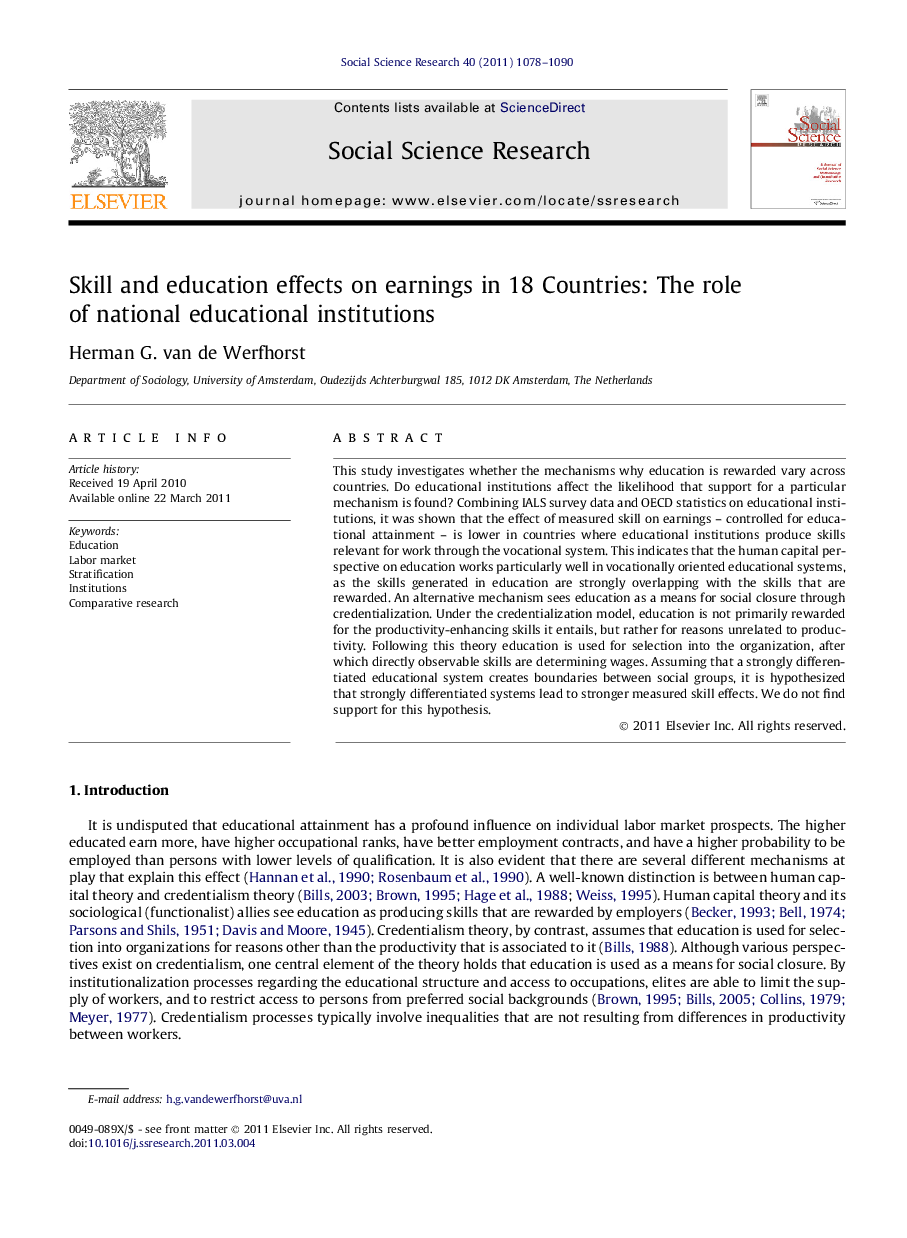| Article ID | Journal | Published Year | Pages | File Type |
|---|---|---|---|---|
| 956147 | Social Science Research | 2011 | 13 Pages |
This study investigates whether the mechanisms why education is rewarded vary across countries. Do educational institutions affect the likelihood that support for a particular mechanism is found? Combining IALS survey data and OECD statistics on educational institutions, it was shown that the effect of measured skill on earnings – controlled for educational attainment – is lower in countries where educational institutions produce skills relevant for work through the vocational system. This indicates that the human capital perspective on education works particularly well in vocationally oriented educational systems, as the skills generated in education are strongly overlapping with the skills that are rewarded. An alternative mechanism sees education as a means for social closure through credentialization. Under the credentialization model, education is not primarily rewarded for the productivity-enhancing skills it entails, but rather for reasons unrelated to productivity. Following this theory education is used for selection into the organization, after which directly observable skills are determining wages. Assuming that a strongly differentiated educational system creates boundaries between social groups, it is hypothesized that strongly differentiated systems lead to stronger measured skill effects. We do not find support for this hypothesis.
